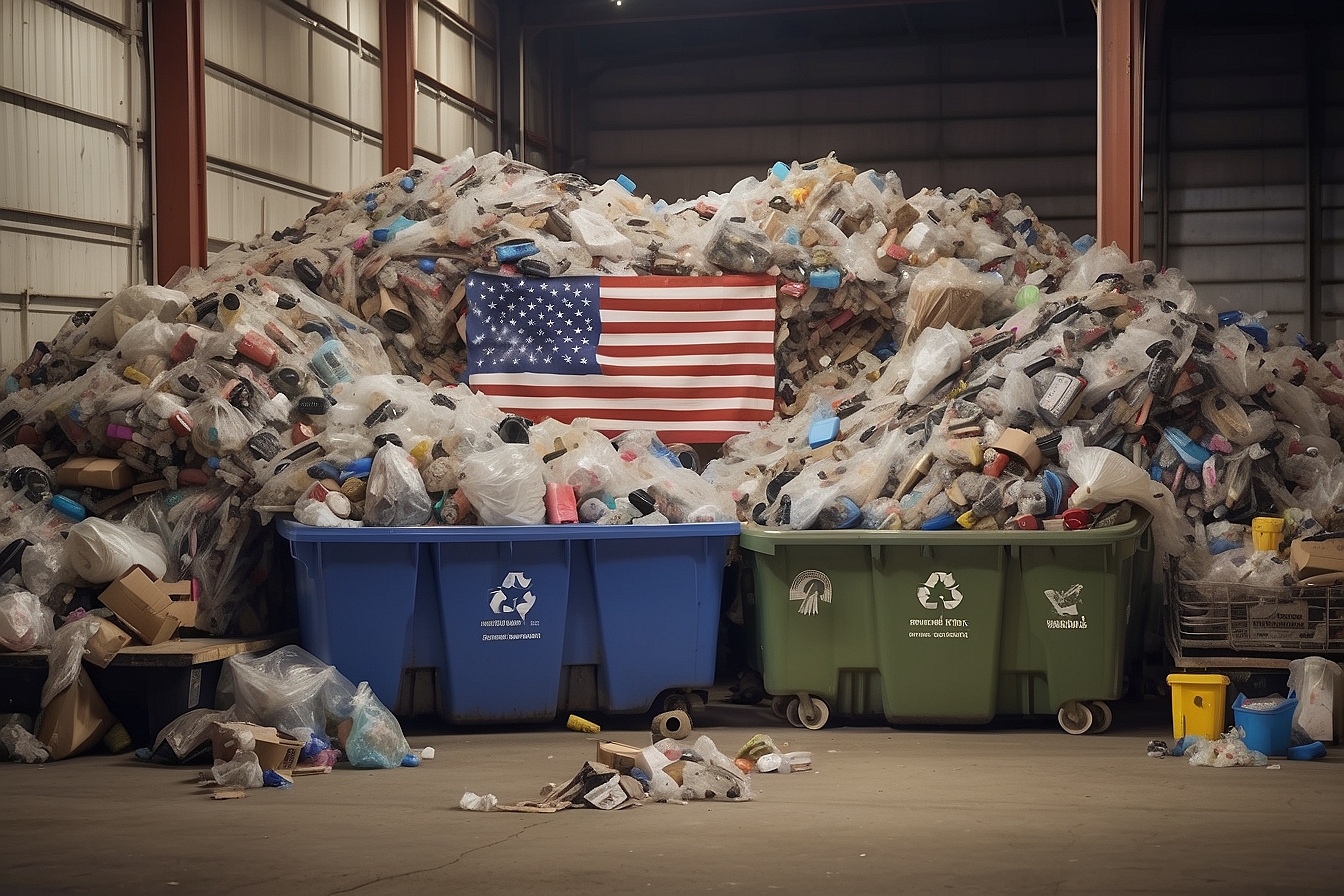As we meander through our cherished local parks and stroll along our beloved beaches, it’s disheartening to see plastic waste tarnishing these natural retreats. It resonates with us deeply; the sight of such neglect spurs us into a steadfast resolve for change.
Astoundingly, every year here in the UK, we’re faced with over 2 million tonnes of plastic packaging use – a fact that underlines the pressing need for immediate action. Our blog aims to unfurl practical steps to heighten public awareness and spearhead tangible strides towards reducing waste.
So let us embark on this journey together!
Key Takeaways
- Every year, the UK produces over 2 million tonnes of plastic packaging, highlighting a major need for action in waste reduction.
- Proper education on recycling and composting can lead to more eco – friendly communities where sustainable waste management practices are the norm.
- By reducing consumption, supporting second-hand markets, and investing in durable goods, individuals can significantly cut down on personal waste production.
- Composting kitchen scraps and engaging in upcycling projects not only reduces landfill contributions but also promotes creative reuse of materials.
- Community swap meets offer a practical approach to reusing items while connecting with neighbours and encouraging others to join in on waste prevention efforts.
The Importance of Public Awareness in Waste Reduction
Understanding the consequences of improper waste management is crucial for promoting environmental sensitivity, while education and promoting recycling and composting can help in reducing household waste.
Encouraging waste prevention and reuse through community action can also make a significant impact on waste reduction efforts.
Understanding the consequences of improper waste management
We see the effects of improper waste management all around us. Landfills are overflowing, with plastic waste finding its way into oceans and harming marine life. Pollution from decomposing rubbish contributes to climate change, poisoning our air and affecting health worldwide.
Every bit of household waste that’s carelessly disposed of can lead to devastating consequences for ecosystems and biodiversity.
Taking action starts with acknowledging these impacts. We must recognise our role in creating sustainable practices that prevent harm to the environment we rely on. Educating ourselves and others about eco-friendly alternatives plays a crucial part in curbing pollution rates.
Imagine communities where everyone prioritises recycling, composting, and reducing their carbon footprint—this is achievable if we commit together to improve our habits surrounding waste management.
Education and promoting recycling and composting
Understanding the consequences of improper waste management leads us to the critical need for education and promotion of recycling and composting. This essential step helps in fostering a culture of sustainable waste management among individuals and communities. To achieve this, we can:
- Organise workshops and seminars to educate the public on the benefits of recycling and composting, emphasising the positive impact on environmental conservation.
- Collaborate with schools to integrate waste reduction awareness into the curriculum, instilling eco-friendly practices in students from an early age.
- Establish community initiatives that provide resources and support for households to effectively participate in recycling and composting efforts.
- Partner with local businesses to promote eco – friendly products and initiatives, encouraging consumer awareness towards sustainable living choices.
- Engage in social media campaigns and outreach programmes to spread awareness about waste reduction, reaching a wider audience for collective action.
Encouraging waste prevention and reuse
Encouraging waste prevention and reuse is vital in reducing the overall amount of waste we produce. It allows us to reduce our carbon footprint and lessen the strain on natural resources. Here are some ways we can actively encourage waste prevention and reuse:
- Embrace a minimalist lifestyle: By consuming less, we inherently produce less waste. Opt for reusable items over single-use products to minimise unnecessary waste generation.
- Support local second-hand markets: Buying and donating items at thrift stores or through online platforms not only reduces the demand for new products but also gives items a second life.
- Compost food scraps: Utilise kitchen scraps to create nutrient-rich compost for gardens, reducing food waste going to landfills while promoting eco-friendly gardening practices.
- Invest in durable products: Prioritise long-lasting, high-quality items that can withstand wear and tear, reducing the need for frequent replacements and subsequent waste generation.
- Adopt upcycling projects: Get creative by repurposing old clothing, furniture, or household items into new and innovative creations, extending their lifespan and reducing waste output.
- Participate in community swaps: Organise or attend swap meets where individuals exchange goods they no longer need, fostering a culture of reuse within the local community.
- Encourage others to do the same: Spread awareness about the benefits of waste prevention and reusing materials by sharing your knowledge with family, friends, and local community groups.
Conclusion
Increasing public awareness about waste reduction is crucial for promoting sustainable living. Understanding the consequences of improper waste management empowers individuals to make informed choices.
Education and promoting recycling and composting help shape eco-friendly habits in communities. Spreading awareness about waste management encourages households to embrace green living and reduce their environmental impact.
Engaging the public in waste reduction initiatives fosters a culture of conservation and sustainability.
FAQs
1. Why is public awareness important for waste reduction?
Public education on waste management is crucial because it helps individuals and communities understand how to reduce household waste and live more eco-friendly lifestyles, supporting sustainability.
2. How can we raise awareness about waste management among people?
Raising awareness on waste management can be done through community engagement programs, spreading information about the importance of reducing plastic waste, and conducting conservation education activities.
3. What role do students play in spreading awareness about managing waste?
Students are key players in sustainability; they can lead by example in their schools by learning and sharing tips on green living and being part of student awareness campaigns on effective waste management.
4. Are there benefits to teaching the public about ecofriendly ways to handle trash?
Yes! When we focus on public education regarding eco-friendly practices, it encourages better choices like recycling which leads to a cleaner environment and promotes overall community health.





